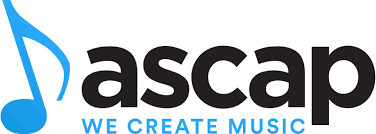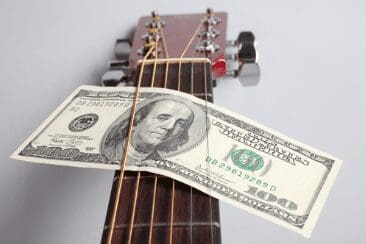Making music is a lot of fun. It is a creative and beautiful-sounding form of expression and acts as something many people can relate to globally. It’s one of the finest forms of art there is. But many songwriters and composers don’t actually know if they’re getting all the performance royalties they deserve.
This is where Publishing Rights Organisations (PROs) come into play and is precisely why we’re talking about ASCAP (the American Society of Composers, Authors and Publishers) in today’s article.
What is ASCAP?

But first things first. What is ASCAP? ASCAP, as mentioned before, is a PRO. As a not-for-profit company, ASCAP collects performance royalties and pays them to the songwriter/composer and publisher. This is for any public performance, be it on a TV ad, whether it’s played on the radio or streamed in a public place.
PROs are a key resource for every musician – especially those in the United States, as getting a PRO membership is the only way of receiving any performance royalties at all!
With over 900,000 members – music creators, songwriters, composers, and publishers – and with over 17 million songs and scores licenced to businesses that play them publicly, ASCAP is the unmistakable leader in performance royalties and advocacy for music creators.
Some of their most famous members include (deep breath), Andrew Lloyd Webber, Mariah Carey, Madonna, Stevie Wonder, Metallica and Korn – just to name a few.
Yes, it has quite an impressive repertoire of members, eh? But where does this story start? Where does it actually begin?
A brief history of ASCAP:
It all started way back in 1914 when a bloke called Victor Herbert paid a visit to a hotel. Here, he heard a musician playing a piece of music that Herbert himself had written, which – low and behold – he had not been paid for. Naturally, he felt this rather unfair. This sparked Herbert’s passion for supporting musicians’ rights when it came to the live performance of their work. Musicians deserve royalties!
From here on out, Herbert dedicated his life to protecting musicians’ music. With his raw passion and high spirits, he organised musicians into a collective to draw the attention of this copyright problem to the policymakers. This has an impact on the passage of the 1909 Copyright Law of the United States which allowed composers to get royalties for the sales of recorded music.
Herbert was born in Ireland but studied music in Germany. Here, he became a talented cellist and composer. He and his wife – opera singer Therese Foerster – moved to New York in 1886 where Herbert then made a name for himself as a composer for operettas (these were romantic comedies with singing and dancing). His most famous work is Babes in Toyland which opened in 1903 and was said to be inspired by The Wonderful Wizard of Oz.
Herbert remained director of ASCAP until he died in 1924. The current president is now American songwriter, singer and actor, Paul Williams.
Today, ASCAP continues to protect the rights of musicians and songwriters globally, by licensing and paying royalties for public performances.
Benefits of an ASCAP Membership

Existing members include Andrew Lloyd Webber, Mariah Carey, Madonna, and Stevie Wonder. ASCAP doesn’t just deal with your royalty rights, but membership with these guys comes with all sorts of perks and benefits. Let’s name a few.
- Royalties
ASCAP ensures that songwriters and composers can collect their rightful royalties when their compositions are performed publicly. It’s their goal to make sure that creators are being compensated for their talent and hard work.
- Services
ASCAP also offers a variety of services for their members. They offer a range of different services to keep things running smoothly – beyond just advocacy and dealing with copyright issues! They also offer legal advice, marketing and promotional support and access to exclusive industry contacts – which ultimately increases members’ visibility as an artist and gets their name out there.
- Online Portal
Yup, you heard right. ASCAP is well and truly part of the 21st century with its online portal. Here, members can track all things royalty related; such as tracking their payments and a range of other useful information. This really takes the headache out of managing your income and payments as a creator. It’s as easy as pie! ASCAP really love to uncomplicate things.
- Values
ASCAP are, and have always been, powerful advocates for a composer’s creative writes – so you can sleep well at night knowing they have your best interests at heart. ASCAP will always ensure that creators are fairly compensated for their work, that their rights are protected, and that they will always receive rightful performance royalties.
Head over to the sign-up page to join ASCAP and become a member.
How does it work?: ASCAP’s Royalty Distribution System

Just to let you know the ins and outs of it, we thought we’d talk a little bit about ASCAP’s Royalty Distribution System and how it all works.
This system collects and distributes royalties to its members. It collects payments from music users – whether from radio, television, streaming services etc – and then distributes the funds to members based on the amount of music they have composed and performed.
This system also provides useful insights, data and detailed information on the usage of their songs, making it easier for members to see how their music is being used.
How much does an ASCAP membership cost?
ASCAP offers a one-time membership fee of $50.00 for a writer or publisher, or $100 for both. And it’s worth every penny. The membership is an investment in a musician’s career – whether by collecting performance royalties or taking advantage of the many perks, benefits and resources of the membership, there are so many positives to an ASCAP membership.
Resources for Writers and Publishers
ASCAP helps writers and publishers of all genres of music. Be it hip-hop, musical theatre, operatic, symphonic, or pop – they do the lot. They offer a variety of useful resources and services to help writers and publishers with performance royalties, find new opportunities and overall grow their careers.
Here are just a few services they offer.
- Songwriter services
Through their songwriter services, ASCAP offers professional advice on copyright law as well as expert songwriting tips and access to professional songwriters and producers.
- Publisher services
ASCAP’s publisher services also cover expert advice on copyright law, as well as publishing contracts and access to professional producers and publishers.
- Member benefits
There are many perks and benefits to being a member. Some include discounts on music industry services and access to exclusive events. They also offer discounts on ASCAP products.
- Music Licensing
ASCAP license music for use across a range of mediums, such as film, television and radio. They offer resources to help writers and publishers wholly understand music licensing and how to maximise its use.
- Educational resources
ASCAP also educational resources, such as helping writers and publishers learn more about the ever-changing music industry and to learn more about copyright law. This comes in the form of webinars, workshops and other materials.

ASCAP’s Socials
A great way to keep up with the latest news on ASCAP is to follow their social media. They have accounts on Facebook, Twitter, Instagram and Youtube. They also share exciting news on their website. On top of all this, ASCAP has a mobile app called ASCAP Mobile, which allows users to access the music library, search for songs and stream the music of ASCAP’s members.
What a PRO won’t do for you
It’s important to understand that Performance Rights Organisations (PROs) are not Publishers, record labels or sync licensing companies. They can’t copyright your work on your behalf. They collect and distribute performance royalties – easy as that.
So, to clear things up, here’s a list of things that a PRO cannot do for you.
Mechanical royalties
Every time your song is sold digitally or physically or streamed online, you’re owed a royalty. The payer would be Spotify, Apple Music, Youtube etc. Your music distributor and publishing admin company collect and distribute these royalties to you.
Sync licensing fees
This fee is simply paid by the creator of video content either directly to you or through a music library or licensing agent/company.
Digital performance royalties
This is when webcasters stream your music. They’re required by law to pay a fee, and SoundExchange will collect these for you – this is not the PROs responsibility.
What is the difference between ASCAP and BMI?

ASCAP and Broadcast Music Inc (BMI) are two of the most popular Performance Rights Organisations in the U.S. But which one should you choose? What makes them different from each other? Well, to make things a little bit easier, we’ve broken them down into similarities and differences, so it’s just that bit easier for you to make a decision.
Similarities:
- Both ASCAP and BMI pay 88% of their collections to their members.
- Pay you for performing your own songs live.
- They allow members to register their performances online.
- They both do not have a recurring membership fee.
- Both companies offer impressive offers, deals, services and resources for their members.
Differences
- BMI has more members and represents more songs (approx. 14 million)
- Songwriter payments from ASCAP take approximately six and a half months after the quarter in which the song was played. Songwriter payments from BMI take five and a half months.
- No one owns your music, they are simply in charge of collecting performance royalties generated by your songs. You keep complete ownership of the songs you register with BMI or ASCAP. However, BMI takes about 12% of the royalties of all royalties it collects and then distributes the rest to its artists and publishers.
- ASCAP has a one-time $50 application fee whereas songwriters get a free membership at BMI.
Note: You don’t need to register with more than one PRO, if anything, it’s easier to stick to one for the convenience of having all your songs in one place. You can’t register the same songs with another PRO whilst you’re under a contract with another one.
Perks and Exclusive Events
Perks of ASCAP
- Access to award shows
- Song camps, workshops and other great events
- Songwriters Hall of Fame membership discount
- US Alliance Federal Credit Union membership
- Discounts on health, dental, instrument, and life insurance
- Discounts on music-related products and services
- Discounts on hotels and rental cars
Perks of BMI
- Songwriting camps, workshops, showcases
- Access to award shows
- You get the chance to perform on BMI-branded staged at big music festivals
- Songwriters Hall of Fame Discount
- Discounts on Billboard Latin Conference, Video Games Live, and Billboard Touring Conference and Awards
- Discounts on music products and services
Are There Cons To Being an ASCAP Member?
Rumour has it, yes – there are a couple.
ASCAP seems to pay based on a ‘sample survey’, meaning that if your music wasn’t utilised when they conducted their survey, you won’t get paid for the music placements. So this one certainly isn’t a pro…
ASCAP also won’t pay you unless you have a publisher’s account, which makes it super tricky for small-time music-makers.
What Is BMI & Who Are They?
Broadcast Music Inc (BMI) is almost a direct competitor to ASCAP. They are another Performance Rights Organisation that started a little later than ASCAP in 1939. BMI has over 500,000 members within its organisation and continues to grow. Some famous BMI members include Kendrick Lamar, Lady Gaga and Sam Smith.
Who Pays More?
The most important question for a lot of us. Who pays more: BMI or ASCAP?
Well, BMI pays more to their members overall – and it especially benefits those in sync licensing. Maybe this is due to BMI’s impressive amount of members and songs. Some say they pay the same, but there is no solid way of knowing for definite.
Who has an easier signup process: ASCAP or BMI?
The signup process for both of these companies is easy as cake and takes only a few minutes to do on their websites. You can sign up for free as a songwriter on the BMI website, however, if you are a publisher you must fill out an application and pay a fee of $150-250.
Which PRO Should You Go for: ASCAP or BMI?
This is going to come down to personal preference. They both do the same exact same thing, which is making sure composers are rightly compensated for public performances of their music. Both PROs offer excellent services and resources, as well as amazing events and networking opportunities.
But it will simply come down to this. If you want to choose the right PRO for you: do your research. Find your best fit. Ask yourself what you want to get out of a PRO membership. What perks and benefits are you after and what would suit you best as a music maker and professional?
There is no one size fits all in these situations, it’s always dependent on the person.










